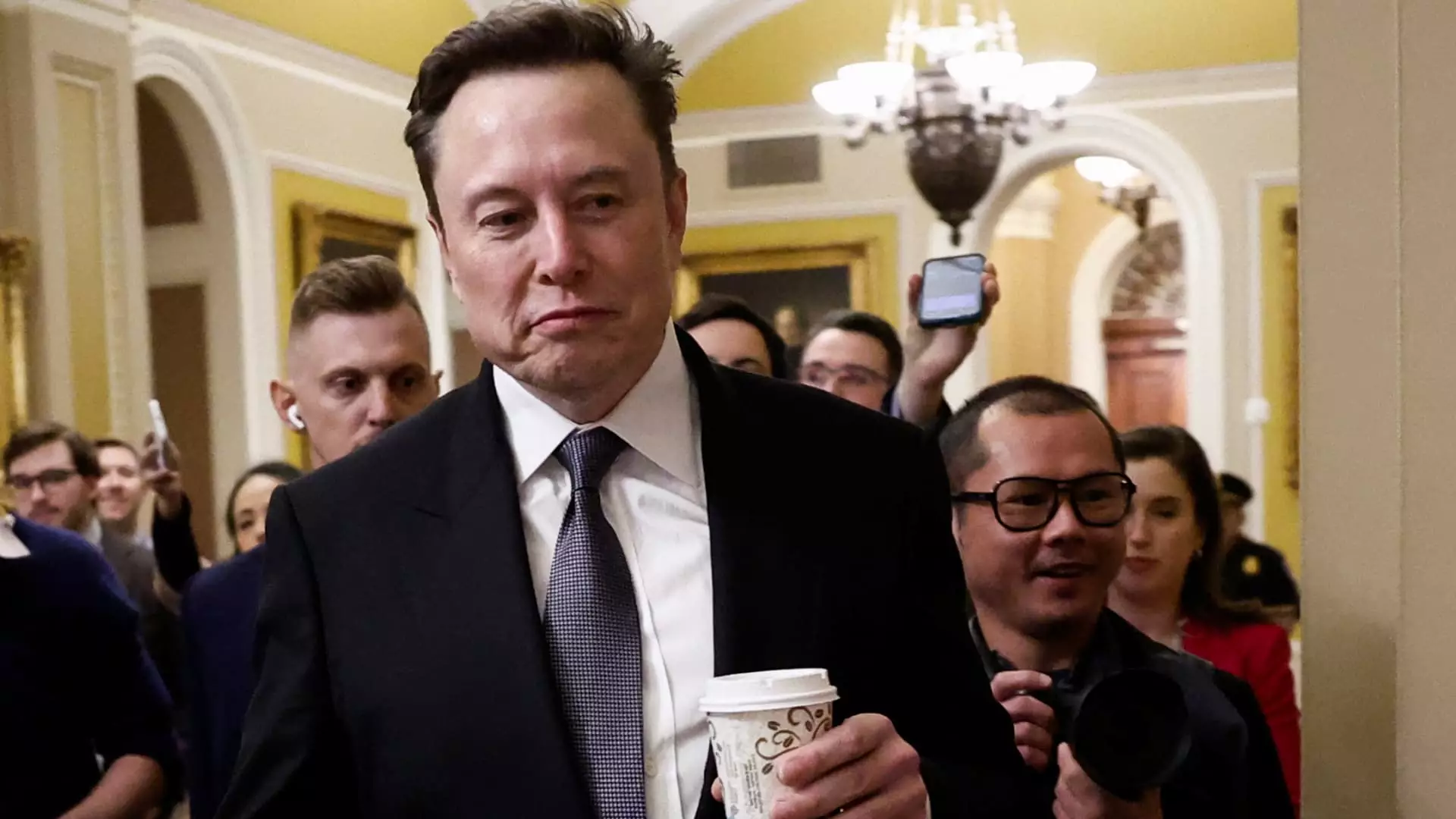Recent events in Congress have resurfaced discussions about the entwining of big tech influence and legislative processes, particularly the dynamics of bipartisan efforts that were thwarted by the interests of corporate giants. In a striking turn of events, House Democrats, notably Jim McGovern from Massachusetts and Rosa DeLauro from Connecticut, accused their Republican colleagues of capitulating to the pressures exerted by Elon Musk. This allegation arose in the wake of a failed government funding bill, which had intentions of regulating U.S. investments in China. Such political discourse raises questions about the ramifications of corporate influence in policymaking and the implications for national security.
The scrapped government funding bill had profound implications for U.S. technology and job preservation. Congressional leaders had envisioned a framework that could bolster the safeguarding of cutting-edge technology—especially in the realms of artificial intelligence (AI) and quantum computing—while simultaneously ensuring that American jobs would remain stateside. According to McGovern, the potential regulations “would have made it easier” to maintain these vital sectors in the U.S. However, issues arose when Musk’s interests in maintaining favorable relations with the Chinese government became apparent, paving the way for tensions between commercial ambitions and national interests.
Musk’s ventures, particularly Tesla’s autonomous fashion in China without the necessity of a local joint venture, illustrate a unique circumstance where business moves may conflict with national security considerations. The roadblock created by Musk’s corporate desires raises an urgent question: how do lawmakers navigate the fine line between fostering business and protecting national interests?
Tesla’s rapid expansion in China, highlighted by the establishment of a factory and a battery plant in close proximity to Shanghai, underscores Musk’s strategic positioning. The intention to roll out self-driving technology within the robust Chinese market is emblematic of a broader trend where companies are prioritizing profit above geopolitical ramifications. According to McGovern, Musk’s financial stakes have led him to “ingratiate” himself with Chinese officials to secure business opportunities, which poses potential risks to U.S. security.
Moreover, the decision by Musk’s SpaceX to stall Starlink services at the behest of Chinese and Russian governments exemplifies how corporate strategies may inadvertently align with foreign political agendas. This relationship raises red flags for U.S. lawmakers who are tasked with ensuring that the national interest is preserved amidst corporate maneuvering.
The political ramifications of Musk’s influence were echoed by DeLauro, who articulated concerns about his ties and approvals from the Chinese government for his ventures. The labeling of Musk as “President Musk” underscores the frustration felt among Democrats, especially given Musk’s observable sway over the current Republican leadership. The former President, Donald Trump, capitalized on this shifting political landscape, with suspicions that his resistance to the bipartisan funding bill stemmed from entrenchments with Musk’s interests.
The fallout from Musk’s criticism of DeLauro—where he denounced her as an “awful creature”—furthers the complex interplay between tech leaders and politicians. This instance illuminates not only the personalities involved but also the overarching concern about how these interactions redefine legislative priorities in an era increasingly dominated by influential billionaires.
As the legislative process continues to evolve amid complex political landscapes, the onus lies on Congress to assert its authority in the face of powerful corporate entities. The dynamics surrounding Musk’s actions illuminate the need for a rigorous reassessment of how business influence shapes policy decisions, particularly concerning national security and technology sectors.
The failure of the bipartisan government funding bill signals a pressing need for accountability within Congress, urging lawmakers to prioritize the public good over individual corporate interests. As society continues to grapple with rapid technological advancements, it becomes imperative that the integrity of legislative processes remains intact. Only through vigilance and steadfast independence can Congress effectively navigate the intricacies of big tech’s burgeoning influence in American politics, protecting both national interests and the democratic tenets upon which the country stands.

